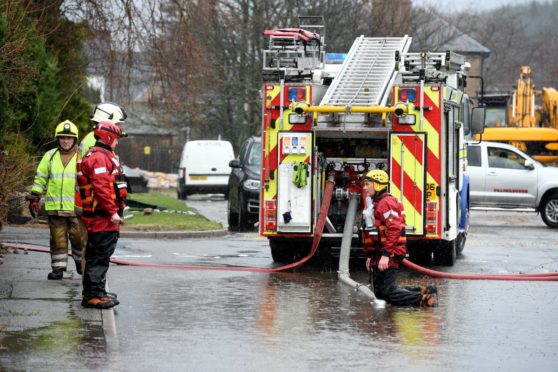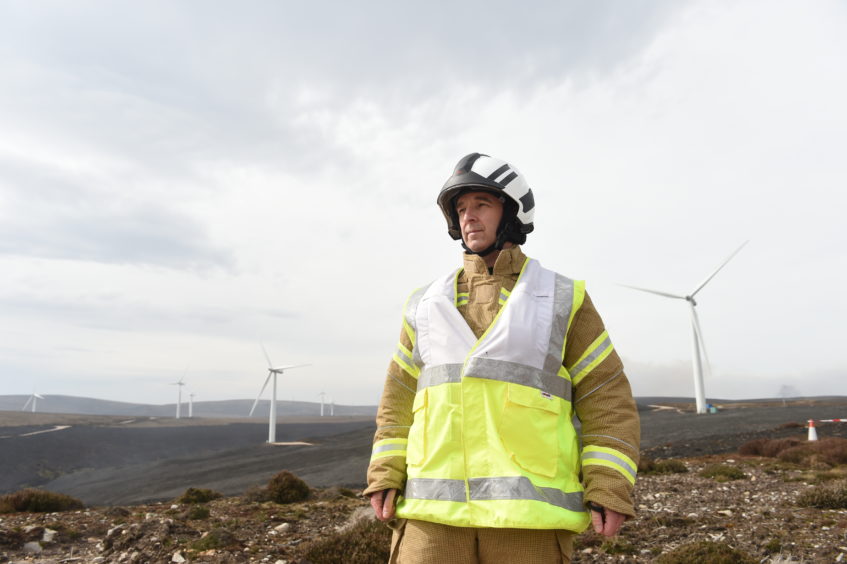Extreme weather such as the flash flooding that battered the north-east this month will force a major culture change in the operation of Scotland’s fire service.
Torrential downpours sent torrents of water pouring down streets, flooding homes and businesses and destroying roads and historic bridges across the region.
And fire chiefs have warned such weather-related disruption will become ever more commonplace in the years ahead.
Councillors on Aberdeen’s public protection committee will next week scrutinise the Scottish Fire and Rescue Service’s three year strategic plan – which warns new resources will be required.
And last night senior city politicians said the burden of bad weather must not only fall on emergency services.
They said local infrastructure improvements will also have to be investigated to stave-off the worst affects.
The report reads: “The climate has changed over the past decade with most areas experiencing a marked rise in extreme and unpredictable weather conditions.
“Severe storms, widespread flooding, significant snow fall and major temperature fluctuations have devastating impacts on peoples’ lives and livelihoods.
“Specialist resources will be strategically placed in areas where there is a greater risk of flooding for example, and firefighters will be prepared, fully equipped and ready to support and protect communities, whatever the weather. ”
Aberdeen city fire service area commander Bruce Farquharson said: “In the last two weeks we have seen devastating evidence of the increasing risks we face in Scotland, with severe weather related flooding affecting communities across the north-east.
“This includes working closer than ever with our partners in Aberdeen and across the country.”
Public protection convener Jennifer Stewart said a “joined-up approach” between local authorities and emergency services would be required to tackle the worst of the weather.
She said: “I think the idea that firefighters only put out fires is a thing of the past and it is clear the job is widening and evolving.
“But it is also clear that we cannot just rely on these emergency services to help.
“Councils across the country will have to seriously look at infrastructure if these extreme weather events are to become more frequent.”
Committee member Martin Greig added: “Because of climate change, the local partnership work between public sector organisations needs to be strengthened.
“There has to be more emergency planning to prepare for potential disasters or major incidents in the north-east.
“There is also the likelihood of more frequent cases of flooding in the future.
“The unusual weather conditions that are developing globally are creating greater challenges for us here in our area.”

